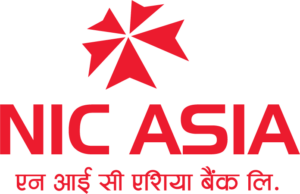.jpg)
Online banking is where the internet and digital mediums meet the financial aspects. With online banking, you don’t need to visit the bank and wait in a queue. All in all, online banking allows you to make transactions effortlessly, swiftly, and conveniently.
In this blog, we will discuss why online banking is more secure than you think.
|
|
Prevalence of Online Banking
In 2020, 1.9 billion people in the world were actively using online banking services. The number is expected to go up to 2.5 billion in 2024. Reports from Nepal Rastra Bank show that at present, there are 4 million mobile banking customers and 0.78 million internet banking customers. Likewise, almost all banks in Nepal have been promoting their internet banking and mobile banking apps. All in all, Nepali society is slowly shifting to digital/online banking.
Factors that make online banking “secure”
People embrace the practice of online banks as this sort of technology allows the utmost convenience of transferring money or paying payments within seconds. So, what makes online banking secure? We will cover this in 3 points:
- Two Factor Authentication:
To strengthen your security while using online banking, two-factor authentication is used. It signifies the second layer of security to login to your online or mobile banking, which means after logging in your name and passwords, you have to get through a second security test. This makes it tough for hackers to hack and unethically use your bank account.
- Automatic logout:
If you don’t show any activity in online banking after logging in, then after 30 to 45 seconds, you can see Session Expired on the screen; this is an automatic logout feature. Moreover, you will automatically be logged out of the e-banking session after a period of inactivity. This helps prevent outsiders from watching or accessing your online accounts.
- Limited liability:
If unauthorized electronic transactions occur, resulting in debits from customer accounts/cards, customers will have limited liability. But you may get some help from the bank if you promptly report unauthorized activities on your account. However, liability limitation depends on the policy of the bank.
- Firewall System:
A firewall system prevents unauthorized access from entering a private network. Talking about firewalls’ use in banks, firewalls give a screen data which comes in and out of computer networks, block unauthorized access and stop traffic from unsafe internet sources.
- High-End Encryption:
Every time you log in to your account on a website or mobile app, all the data you send and obtain is protected by end-to-end encryption. You may not realize how end-to-end encryption performs; simply put, it secures your messages and protects transfer data between the computers or mobile phones and the server you connect to.
What can you do for safer online banking? Well, to know more about bonus tips for safer online banking practices, you can read our blog on 5 tips for safer internet banking.
Secure Online Banking With NIC ASIA
Striving to become the No. 1 bank in Nepal, NIC ASIA Bank ensures all of its online banking services to be top-notch. To add more, NIC ASIA Bank is one leading commercial bank in Nepal when it comes to digitally-enabled customer and merchant partnership base.
NIC ASIA has constantly been strengthening its digital banking solutions, including safer online banking practices in Nepal. Thus, if you are thinking of opening a bank account online, then NIC ASIA Bank is the perfect place. NIC ASIA Bank offers a whopping 8.03% interest p.a. the highest interest rate on savings accounts which is the highest interest on savings in Nepal.
Download NIC ASIA MoBank App for digital banking services.
If you find this article helpful, do share it with your friends and family. Let’s strengthen our digital finance literacy!
Share in


Leave A Comment